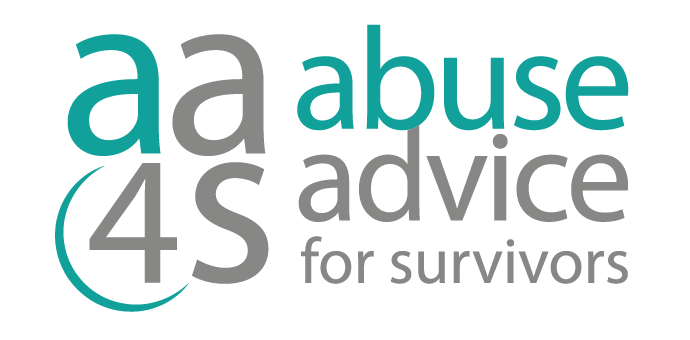Frequently asked Questions & Answers
Anyone may bring a claim for a breach to the Human Rights Act directly in the UK Court if they are a “victim” or a “potential victim”.
The “victim” as defined by the Human Rights Act is:
(1) Any individual who has been affected or is at risk of being directly affected by something done by a public authority.
(2) Any relative of a victim, if the complaint is about the death of the victim.
(3) Any organisation, interest group or trade union if it is itself a victim.
The Human Rights Act 1998 provides that claims can only be brought against a “public authority” and not against another individual. In general terms, public authorities are bodies serving a public function or governmental purpose, for example Local Authorities, Police forces, prisons or NHS staff.
Private organisations can also be classed as public authorities when they perform duties of a public nature, for example a private security company contracted to transport prisoners on behalf of the Prison Service.
If you are unsure whether the person or organisation whom you allege has breached your human rights is a “public authority”, you should always seek legal advice.
Any claim alleging a breach of the Human Rights Act can be commenced in any UK County Court or, if the claim involves a personal injury and is valued at more than £50,000, in the High Court. Due to the complexity of the legal arguments and the seriousness of the case, many cases, which might otherwise be commenced in the County Court might be transferred to the High Court.
Court proceedings begin in the same way as any standard claim for compensation by using a standard Claim Form (N1) and the standard Court fees will apply, as they would for standard cases.
In any Human Rights claim, the Court must also be given full details of which part of the Human Rights Act you believe has been breached and details of how you allege there has been a breach.
Further, you are required to tell the Court in your Claim Form what remedy you would like the Court to make, for example, a change in procedure or a claim for compensation.
Special details about making a claim under the Human Rights Act and what information is required in your Claim Form are set out in the Court’s Practice Direction, supplementing Part 16 of the Civil Procedure Rules.
Court staff will be able to provide you with a copy of the Practice Direction. You should always seek legal advice.
The Court Rules require anyone bringing a claim to confirm in the Claim Form that the claim includes an action under the Human Rights Act. The Court Service monitor the number of Human Rights Act claims being made.
There are two types of claim under the Human Rights Act:
(1) A claim for compensation or money owed, based upon a breach of one or more of the rights protected under the Act.
(2) A non-money claim, for example an application for Judicial Review of a decision or action of a public authority or an application for an Injunction. (Judicial Review applications have a different procedure and can only be brought in the Administrative Court Office of the Royal Courts of Justice on a separate Judicial Review Claim Form.)
Court proceedings under the Human Rights Act, where it is alleged that a breach of the Act has taken place on or after 2 October 2000 (the date when the Act came into force) must be brought at Court within one year of the date when the breach of the Act took place. The time limit is strict. A separate time limit of only three months applies in cases where you are asking the Court for a Judicial Review of a public authority decision.
In any case, where it is alleged that your Human Rights were breached before 2 October 2000 (before the Act came into force), you must consider making a claim to the European Court of Human Rights rather than in a UK Court.
The Judge hearing the case will need to hear evidence that there has been a breach of the Human Rights Act. If the Judge finds that a public authority has already acted or proposes to act in a way that is not compatible with the Human Rights Act, the Judge may grant whatever remedy he/she considers to be just and appropriate and which might be within his/her power. It might include an award of compensation, a Declaration or an Injunction.
The amount of compensation awarded for breach of Human Rights Act is likely to be equivalent of what the European Court of Human Rights would have awarded in the same case. The level of compensation awarded by the European Court of Human Rights is generally quite modest. Compensation is not an automatic right and the Judge might consider that a Declaration that a human right has been breached might be sufficient.
Whilst the procedures for bringing a Human Rights claim in the UK Courts are very similar to standard claims for compensation involving a personal injury, Human Rights law is complex and the time limits for bringing a claim are much shorter than a standard compensation claim.
A brief description of the main rights contained in the Human Rights Act 1998 are set out below. In each case, legal advice is strongly recommended.
Article 2: The Right to Life
Public authorities such as a local council, police, a prison or an NHS hospital must not cause the death of any person. Public authorities have a positive obligation to protect life in some situations.
Article 3: The Right to Freedom from Torture and Inhuman or Degrading Treatment
or Punishment
Torture is the most serious kind of ill-treatment. Inhuman or degrading treatment is less severe than torture but may include physical assault or corporal punishment. The ill-treatment may be both mental and physical. Whether ill-treatment qualifies as torture or inhuman treatment would depend upon the facts of the case including the duration of the treatment, how severe the treatment was and the vulnerability of the victim.
Article 4: The Right to Freedom from Slavery, Servitude and Forced or Compulsory
Labour
Slavery is defined by the Home Office as meaning that ‘a person is owned by someone else, just as if they were a piece of property’. Dominant Servitude is not actually owned by another person but they may have to live on that person’s property and be unable to leave.
Article 5: The Right to Liberty and Security of a Person
Anyone has the right not to be arrested or detained, except where the detention is authorised by law. Article 5 does not only apply to police arrests but covers all aspects of detention including for medical or psychiatric reasons. Certain circumstances on which the Act considers it is acceptable for someone to be detained including after a conviction by a criminal court or where there is reasonable suspicion that someone has committed a crime.
Article 6: The Right to a Fair and Public Trial within Reasonable Time
Everybody accused of a crime has rights, including the right to be believed innocent until proven guilty and the right to proper time and facilities to prepare their defence. The emphasis on a public trial shields plaintiffs from private administration of justice with no public scrutiny.
Article 7: The Right to Freedom from Retrospective Criminal Law and No Punishment without Law
No one may be convicted of an act that was not a criminal offence at the time it was committed. They also cannot face a penalty that did not exist at the time the act in question occurred. This part of the Act requires that a law imposing a criminal offence punishment be clear enough that a reasonable person can anticipate the legal consequences.
Article 8: The Right to Respect the Private and Family Life, Home and Correspondence
This is a broad part of the Act with far-reaching effects. Public authorities may only interfere with someone's private life if they have the legal authority to do so, if the interference is required in a democratic society for one of the Article's stated goals, and if the interference is appropriate to that goal. The Article further addresses instances such as monitoring employees' phone calls and mail, conducting body searches, exposing private information, and imposing restrictions on entering a person's home. It also addresses problems such as the right of families to cohabit.
Article 9: The Right to Freedom of Thought, Conscience and Religion
Everyone has the right to hold any opinions, moral positions, or religious beliefs they want. This provision of the Act ensures that right for everybody.
Article 11: The Right to Freedom of Assembly and Association
This includes the freedom to peacefully demonstrate as well as the right to join or not join trade unions.
Article 12: The Right to Marry and Find a Family
This article may be relevant to adoption and fostering rules and policies.
Article 14: The Prohibition of Discrimination in the Enjoyment of Convention
Rights
Protocol 1, Article 1: The Right to Peaceful Enjoyment of Possessions and
Protection of Property
This grants everyone the right to enjoy things and property like as houses, automobiles, licences, and 'goodwill' indefinitely. The right to engage in a profession can also in some situations be a property right. No one can be deprived of their property unless the action is legal and justified in the public or general interest.
Protocol 2, Article 2: The Right of Access to Education
The right to an education must be balanced against the available resources. This may be important to school penalties, such as expulsion of disruptive students, and it may also be applicable to children with special educational needs.
Further information
Further information in relation to Human Rights may be found on the following
web sites:
- The UK Court Service – www.courtservice.gov.uk
- The Home Office .Gov Website
- The European Court of Human Rights www.echr.coe.int
- The Council of Europe, Human Rights Directorate http://www.coe.int/t/dgi/welcome_en.asp










